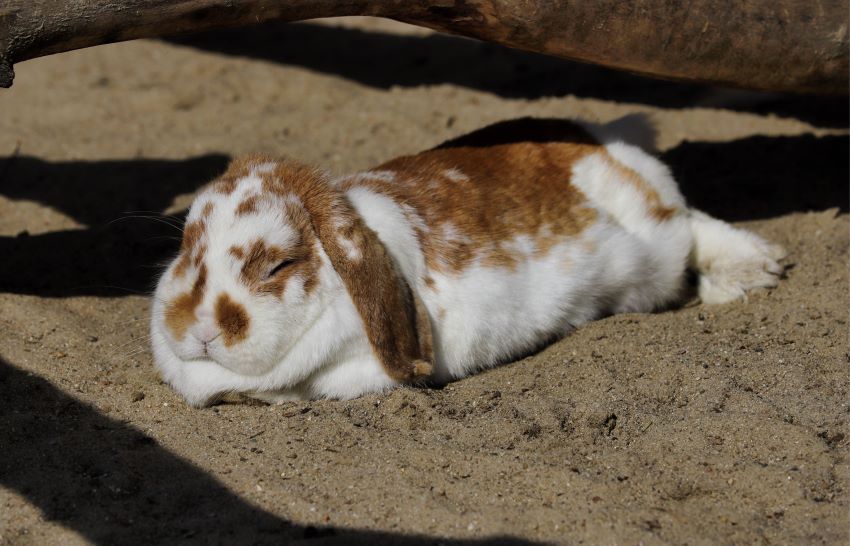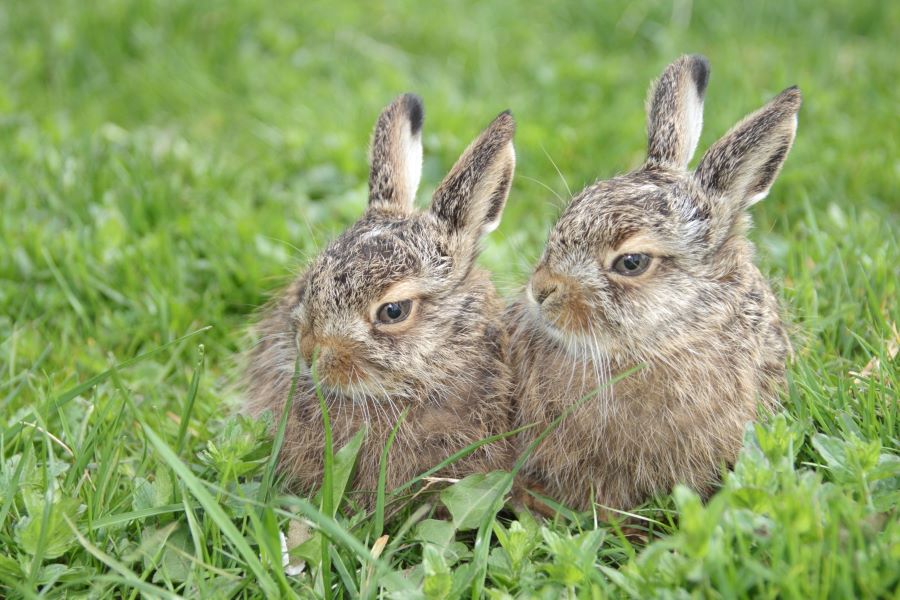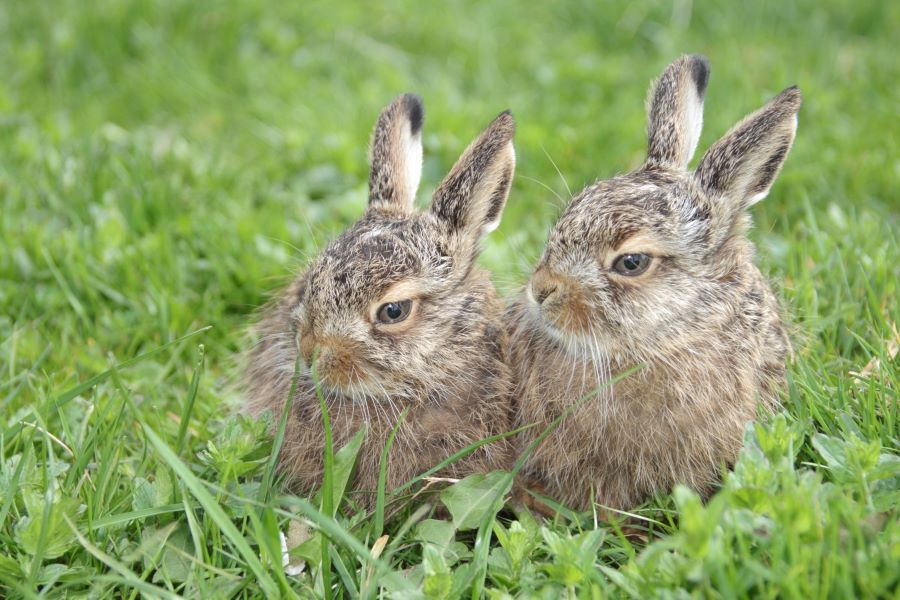Some of the posts on Mercury Pets contain affiliate links to products. That means if you click on that link and then make a purchase, we receive a percentage of the sale. We only recommend products we’ve used and support, and there’s no additional cost to you — the money goes right back into making this site the best it can be! Thanks for reading.
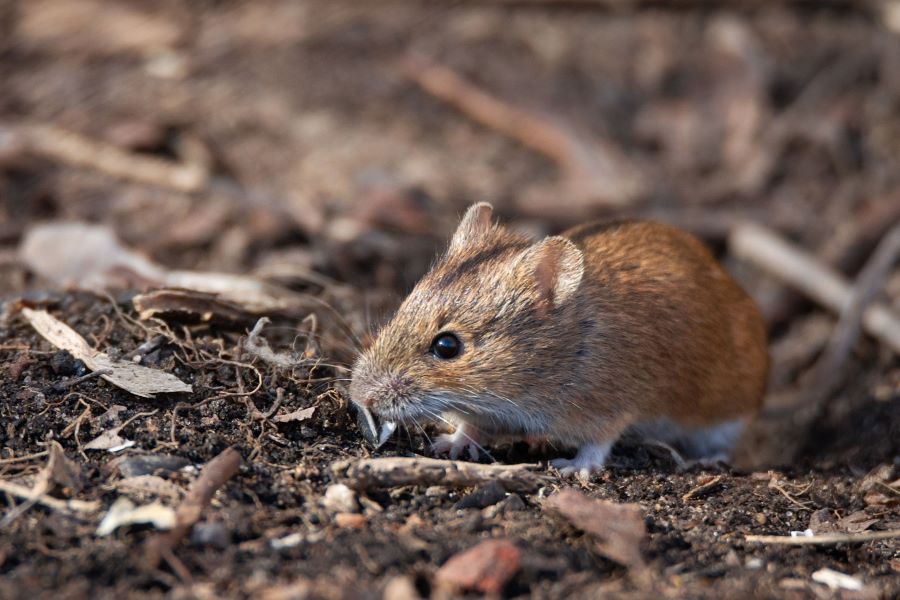
Is your rabbit going to attract mice? This is clearly a concern for owners as nobody wants those little rodents running around your home or property.
Keeping rabbits on your property can attract mice. Mice are attracted not to the rabbits themselves, but to the sources of food that bunnies provide. Mice will eat stray food, and also rabbit droppings. Also they are attracted to the safety and warmth of the rabbit living environment.
Having rabbits does not guarantee that you will attract mice, and there are certainly many steps you can put into place to try to prevent this.
I’m going to go into full detail about what’s attracting mice, and then the steps you can put into place to stop it from happening.
What is Attracting Mice
The first thing to mention is that it’s not your actual rabbit that’s attracting mice. Those rodents have no interest in your actual bunny. To them, your rabbit is this large animal that they will be wary of, but more on all of that later.
You need to remember that mice are scavengers. They are going to get absolutely nothing from your rabbit as a creature. However, their droppings and food are another story. Things that your rabbit can offer them are like a delicacy and constant source, and that’s heaven for a mouse.
Mice have an absolutely amazing sense of smell. They will be able to sniff out a good meal with ease, and those droppings and rabbit food are going to come across like a delicacy for them. As a result, they can be drawn to wherever your rabbit is living, and that can include even when you keep your rabbit indoors.
An Outdoors Hutch is the Perfect Place For Mice
But if you keep your rabbit outdoors in a hutch, then this is like a potential palace for mice. When you think about what’s in the hutch, then it’s easy to understand why a mouse would be drawn to it. So, you must take steps to turn the hutch into something that is less appealing to a mouse.
First, a hutch is a large space for a mouse. It provides warmth and is a safe place to be from other predators. The mouse will quickly know that your rabbit is not going to be a danger to it, so it will feel as if it can settle in there and live its life.
Also, it will have a constant fresh supply of food right there in front of it, so why would it ever want to go anywhere else? Oh, and don’t forget that they will also be happy with the water as well. A mouse has to drink as well.
A hutch would make the perfect nesting site for a mouse, so don’t be too surprised if one pitches up in your hutch.
But Why Does the Mouse Feel Safe?
You need to remember that a mouse will generally run away from anything that is bigger than it, but they aren’t silly creatures.
Instead, they take advantage of the fact your rabbit is quite a docile and calm animal. They are not aggressive, and the chances of them even being bothered about something as small as a mouse sharing their space are very low. That’s not to say your rabbit will never attack them. They can get upset at some other creature being in their space from time to time, but the odds are low for that to happen.
At first, the mouse will be wary, as that’s the natural thing for them to do. They will scurry away if the rabbit moves towards them, or does something that could be scary. However, as time passes, they will notice that the rabbit has little interest in them, and then the mouse will settle into their new pad.
Is Your Rabbit in Danger From the Mouse?
Of course, as the owner of an adorable rabbit, you want to know if a mouse will pose any danger or risk to the health of your rabbit? Well, there is no reason for you to worry about it.
A mouse will leave your rabbit alone. They won’t bother them, or stress them out, or increase their anxiety. This also applies to baby rabbits, but we are only talking about them actually attacking your rabbit.
There is a difference when it comes to diseases that mice will tend to carry around, as those diseases can carry some risk to the health of your rabbit.
Mice tend to have a problem with various parasites and diseases, and they can make the leap over to your rabbit and potentially make them very ill.
Problems such as fleas, ticks, and mites are common. They all carry bacteria and different viruses, so the risk of your rabbit picking up some kind of illness is going to be pretty high.
Look out for problems such as salmonella and hantavirus with mice. [Source] Both can be deadly to your rabbit, and it’s contained within the droppings of mice. Even if the droppings have dried out and crumbled into dust, they can still contain the live virus, so you need to be careful and remove any sign to stop your rabbit from potentially being infected.
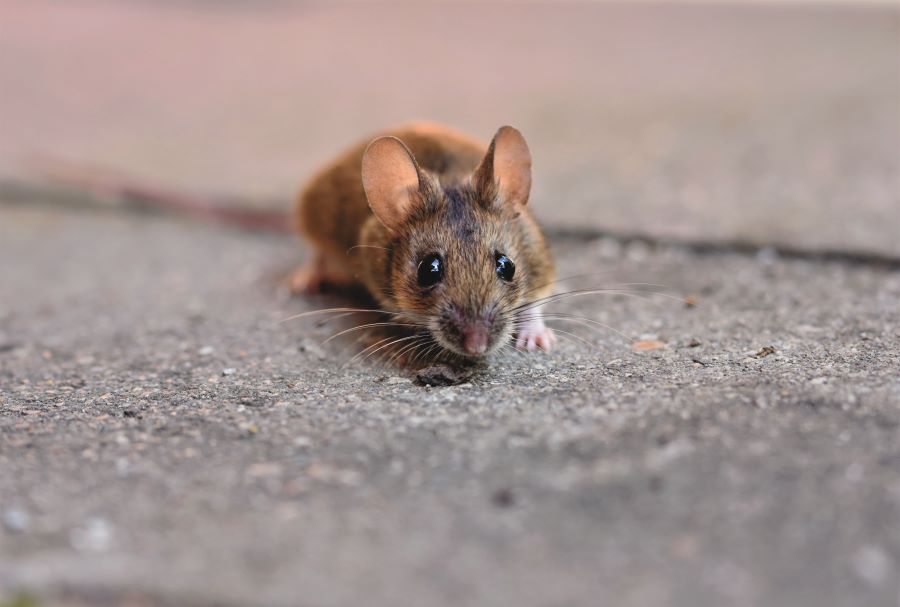
How to Stop Mice Becoming a Problem
As you can see, mice can become a problem around rabbits, and even though the image of a small mouse snuggling up in a hutch beside your rabbit sounds cute, the reality is something different.
So, how do you stop mice from becoming an issue? Well, there are several things, but be warned that nothing is going to come with a 100% guarantee. Mice can be tricky and determined little creatures, so don’t be surprised if they find the smallest weak point and still get in there. Their desire for warmth and food is very powerful. [Source]
Making Your Rabbit Home Safe From Mice
The first task is to look at how turn wherever your rabbit lives into a haven that’s safe from mice. Now, remember that mice have the ability to squeeze in through the smallest of cracks or spaces, so you need to be extra careful with everything you do.
One thing you could do is to invest in another hutch, and find one that claims to be capable of keeping out rodents. However, if you don’t want to spend out that kind of money, then you can make a few changes all by yourself.
Look at any mesh that’s on the hutch. It should be made from chicken wire and be as small as 0.5 inches. That should be small enough to keep those rodents out as anything bigger, and they will squeeze through the gap and take up residence.
Next, turn your attention to the floor. Check for any small holes or gaps. Also, keep an eye out for any wood that may be slightly rotten. Pay close attention to the outside of the hutch and look for any sign of gnawing. This will be a clear sign that a rodent of some kind is making an attempt to gain entry.
Look at where they are gnawing and try to determine why they have picked that spot. Then, reinforce that area to stop them from breaking through. If you spot any holes appearing, then patch them up immediately. Well, after checking that a mouse hasn’t already made its home inside of the hutch.
Also, keep the hutch clean. Get rid of droppings off the floor and stop them being mushed into the base. When that happens, it gets harder to clean things up, and the scent will constantly attract not only mice, but also rats.
Protecting Your Yard
To reduce the chances of mice becoming a problem, you must also look beyond the initial hutch and see how you can rodent proof your yard in general. By stopping them getting close to the hutch, it means you will then not have to deal with any potential consequences of a rodent infestation.
Lay traps in your yard, keep things clean, you can even use sonic devices designed to keep them away. These devices will not be harmful to your rabbit, so they could be a great option for some people.
But be aware that some of the anti-rodent measures that you take can also be a problem for your rabbit. If you have any concerns, then talk to a pest control expert who will be able to advise you on the best solution that will also protect your rabbit.
Prevention is the Best Cure
Preventing a problem is certainly the best cure, so this is what we recommend for any rabbit owner.
First, clean the hutch on a regular basis. Food and rabbit droppings are a major draw for rodents. By cleaning regularly, it removes one of the draw cards for rodents. Of course, you should be cleaning on a regular basis anyway, since it’s better for the health of your rabbit.
But there’s also the issue of storing food. Don’t have it close to your rabbit and their hutch. That will draw in rodents all on its own, as their sense of smell is so good that they will pick up on the food scent in next to no time.
Also, rabbit food is generally stored in materials that a mouse will find easy to nibble through. They will use that material for nesting, so food storage is a key consideration. Keeping it in your garage and not taking care of any potential rodents in that area will lead to problems.
You may also want to check where you place food in the hutch for your rabbit. Don’t put it next to any walls consisting of mesh. That will lead to it becoming more likely that rodents will try and grab a nibble, and you want to reduce the chances of that happening.
Finally, think about the positioning of the hutch in general. You either want to put it tight against a wall or at least three feet away from a wall. This is to eliminate the chances of rodents using spaces to hide in, as well as making it harder for them to gain access to the hutch.
A Quick Mention About Rats
Even though this post is all about mice, we need to quickly mention rats as they too can become a real problem. They carry the same kinds of diseases and parasites as mice. They are also attracted to the hutch because of the same reasons as mice, but there is an important difference.
Rats are not as scared as mice when it comes to your rabbit. They can attack your rabbit, and that’s a problem you will then have to contend with. Also, if your rabbit has young, then they are particularly susceptible to being attacked by rats.
Check the hutch on a regular basis, as well as the surrounding areas, for any signs of rat activity. Lay traps in order to catch them and get on top of any potential problem before it’s too late.
So, while your rabbits can indeed attract mice, it’s not your actual rabbit that’s the focus of the attention of rodents. They have no interest in your rabbit, apart from rats with kits, as it’s all connected to food and warmth. Mice are trying to survive, just like any other animal, and they see things connected to your rabbit as being a constant source for that survival.
All you need to do is to consider following the different points mentioned above and implement them around the hutch. Get that cleaning routine up and running, and store food well away from your rabbit. Make things as rodent-proof as possible, and you should hopefully have no issues when it comes to mice or any other type of unwanted visitor.

